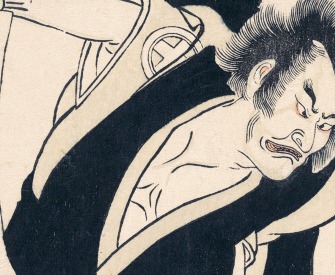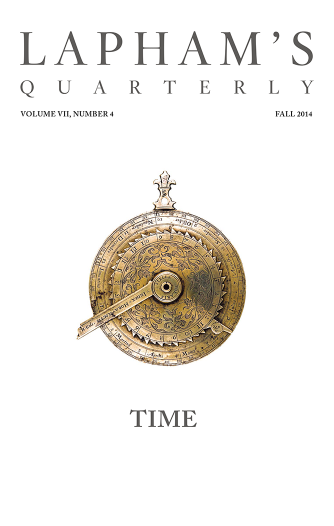Some men never recover from education.
—Oliver St. John Gogarty, 1954Return to Earth
Rabindranath Tagore wants children to learn from experience.
I started a school in Bengal when I was nearing forty. Certainly, this was never expected of me, who had spent the greater portion of my life in writing, chiefly verses. Therefore people naturally thought that as a school it might not be one of the best of its kind, but it was sure to be something outrageously new, being the product of daring inexperience.
I know what it was to which this school owes its origin. It was not any new theory of education but the memory of my school days. That those days were unhappy ones for me I cannot altogether ascribe to my peculiar temperament or to any special demerit of the schools to which I was sent. It may be that if I had been a little less sensitive, I could gradually have accommodated myself to the pressure and survived long enough to earn my university degrees. But all the same, schools are schools, though some are better and some worse, according to their own standard.
The young mind should be saturated with the idea that it has been born in a human world which is in harmony with the world around it. And this is what our regular type of school ignores with an air of superior wisdom, severe and disdainful. It forcibly snatches away children from a world full of the mystery of God’s own handiwork, full of the suggestiveness of personality. It is a mere method of discipline which refuses to take into account the individual. It is a manufactory specially designed for grinding out uniform results. It follows an imaginary straight line of the average in digging its channel of education. But life’s line is not the straight line, for it is fond of playing the seesaw with the line of the average, bringing upon its head the rebuke of the school. For according to the school, life is perfect when it allows itself to be treated as dead, to be cut into symmetrical conveniences. And this was the cause of my suffering when I was sent to school. For all of a sudden, I found my world vanishing from around me, giving place to wooden benches and straight walls staring at me with the blank stare of the blind. I was not a creation of the schoolmaster—the government board of education was not consulted when I took birth in the world. But was that any reason why they should wreak their vengeance upon me for this oversight of my creator?
But the legend is that eating of the fruit of knowledge is not consonant with dwelling in paradise. Therefore men’s children have to be banished from their paradise into a realm of death, dominated by the decency of a tailoring department. So my mind had to accept the tight-fitting encasement of the school, which, being like the shoes of a mandarin woman, pinched and bruised my nature on all sides and at every movement. I was fortunate enough in extricating myself before insensibility set in.
Though I did not have to serve the full penal term which men of my position have to undergo to find their entrance into cultured society, I am glad that I did not altogether escape from its molestation. For it has given me knowledge of the wrong from which the children of men suffer.
The cause of it is this, that man’s intention is going against God’s intention as to how children should grow into knowledge. How we should conduct our business is our own affair, and therefore in our offices we are free to create in the measure of our special purposes. But such office arrangement does not suit God’s creation. And children are God’s own creation.
We have come to this world to accept it, not merely to know it. We may become powerful by knowledge, but we attain fullness by sympathy. The highest education is that which does not merely give us information but makes our life in harmony with all existence. But we find that this education of sympathy is not only systematically ignored in schools but is severely repressed. From our very childhood, habits are formed and knowledge is imparted in such a manner that our life is weaned away from nature and our mind and the world are set in opposition from the beginning of our days. Thus the greatest of educations for which we came prepared is neglected, and we are made to lose our world to find a bagful of information instead. We rob the child of his earth to teach him geography, of language to teach him grammar. His hunger is for the epic, but he is supplied with chronicles of facts and dates. He was born in the human world but is banished into the world of living gramophones, to expiate for the original sin of being born in ignorance. Child nature protests against such calamity with all its power of suffering, subdued at last into silence by punishment.
Our childhood is the period when we have or ought to have more freedom—freedom from the necessity of specialization into the narrow bounds of social and professional conventionalism. I well remember the surprise and annoyance of an experienced headmaster, reputed to be a successful disciplinarian, when he saw one of the boys of my school climbing a tree and choosing a fork of the branches for settling down to his studies. I had to say to him in explanation that “childhood is the only period of life when a civilized man can exercise his choice between the branches of a tree and his drawing-room chair, and should I deprive this boy of that privilege because I, as a grown-up man, am barred from it?” What is surprising is to notice the same headmaster’s approbation of the boys’ studying botany. He believes in an impersonal knowledge of the tree because that is science, but not in a personal experience of it.
This growth of experience leads to forming instinct, which is the result of nature’s own method of instruction. The boys of my school have acquired instinctive knowledge of the physiognomy of the tree. By the least touch, they know where they can find a foothold upon an apparently inhospitable trunk; they know how far they can take liberty with the branches, how to distribute their bodies’ weight so as to make themselves least burdensome to branchlets. I myself was brought up in a cultured home in a town, and as far as my personal behavior goes, I have been obliged to act all through my life as if I were born in a world where there are no trees. Therefore I consider it as a part of education for my boys to let them fully realize that they are in a scheme of existence where trees are a substantial fact, not merely as generating chlorophyll and taking carbon from the air but as living trees.

Rabindranath Tagore
From “My School.” In 1916 the Bengali poet and philosopher embarked on a speaking tour in Japan and the United States, during which he delivered this lecture. Three years earlier he had become the first non-European to be awarded the Nobel Prize in Literature. When Tagore received the news, his biographer E.J. Thompson was visiting his school in Santiniketan. “The boys went mad,” Thompson wrote. “They didn’t know what the Nobel Prize was, but they understood that the gurudeb they adored had done something wonderful, as indeed he was always doing.”

